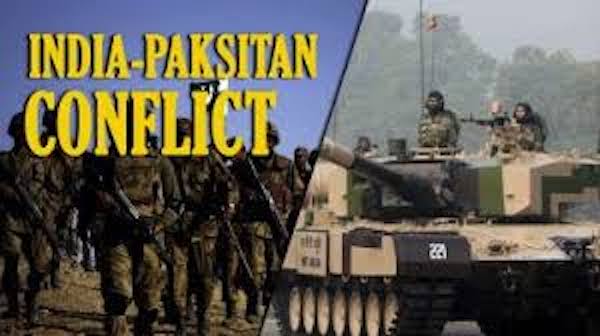

“The misguided Pakistani military escalation against India was meant to cloak Pakistan’s continued inability to fulfil its obligations to counter terrorism under international law. It is worth noting that all three neighbors of Pakistan–India, Afghanistan and Iran-have in recent weeks expressed their deep concern at Pakistan’s ineffectiveness to counter terrorism emanating from its soil or from territory controlled by it.”
In the early hours of 26 February 2019, India struck the biggest training camp of the terrorist group Jaish-e-Mohammed (JeM) in Balakot, located in Pakistan. The JeM had claimed responsibility for the Pulwama terrorist attack of 14 February 2019, in which 40 Indian policemen had been killed. India took this robust counter-terrorist action after repeatedly urging Pakistan to act against the JeM, as obliged under United Nations Security Council Resolution 1267. It may be recalled that the United Nations had proscribed the JeM as a terrorist organization and called for enforcing sanctions on its members since 2001.
India’s action against the JeM has been endorsed by the major powers. The United States Secretary of State Mike Pompeo had spoken with Indian Minister of External Affairs Sushma Swaraj to emphasize the close security partnership and shared goal of maintaining peace and security in the region. He also spoke to Pakistani Foreign Minister Qureshi to underscore the priority of de-escalating the current tensions by avoiding military action, and urged Pakistan to take meaningful action against terrorist groups operating on its soil. He expressed to both Ministers that Washington encourages India and Pakistan to exercise restraint and avoid escalation at any cost. He further encouraged both Ministers to prioritize direct communication and avoid further military activity.
The meeting between the Foreign Ministers of India, China and Russia was held in Wuhzen, China. External Affairs Minister Sushma Swaraj used this occasion to convey that “this was not a military operation. No military installations were targeted. The limited objective of the pre-emptive strike was to act decisively against the terrorist infrastructure of JeM in order to pre-empt another terror attack in India.” The Joint Statement issued by the three Foreign Ministers after their meeting “stressed that terrorist groups cannot be supported and used in political and geopolitical goals.”
Instead of heeding calls for avoiding military action, Pakistan decided to launch an “unprovoked act of aggression” on 27 February 2019 when Pakistani military aircraft violated Indian air space and targeted Indian military posts. However, these aircraft were intercepted by Indian Air Force fighter aircraft which thwarted their plans. In the aerial combat that ensued one F-16 of Pakistan’s Air Force was shot down by an Indian Air Force MiG-21 Bison. The Indian Air Force lost one MiG-21 in the aerial engagement. The pilot of this plane ejected safely, but his parachute drifted into Pakistan Occupied Jammu and Kashmir, where he was taken into custody by the Pakistan Army as a prisoner-of-war. In keeping with the Geneva Convention, the pilot of the Indian aircraft is being returned to India. It may be recalled that after the 1971 Bangladesh war, India had repatriated 93,000 Pakistani soldiers taken as prisoners-of-war to Pakistan without any conditions.
The misguided Pakistani military escalation against India was meant to cloak Pakistan’s continued inability to fulfil its obligations to counter terrorism under international law. It is worth noting that all three neighbors of Pakistan–India, Afghanistan and Iran-have in recent weeks expressed their deep concern at Pakistan’s ineffectiveness to counter terrorism emanating from its soil or from territory controlled by it.
The position of the UN Security Council on terrorist attacks emanating from Pakistan against India, Afghanistan and Iran has been consistent and unanimous. In each of these cases, “the members of the Security Council underlined the need to hold perpetrators, organizers, financiers and sponsors of these reprehensible acts of terrorism accountable and bring them to justice and urged all States, in accordance with their obligations under international law and relevant Security Council resolutions, to cooperate actively with the Governments of the three countries and all other relevant authorities in this regard.” Now it is for the Security Council to find the political will to enforce its decisions under the provisions of Article 41 of the UN Charter to compel Pakistan to fulfil its obligations to counter terrorism.
(The author is a former Permanent Representative of India to the United Nations)
(Source: Air World Service , March 1)





Be the first to comment